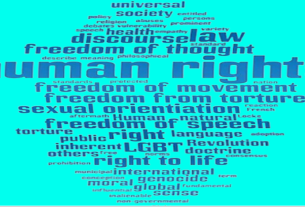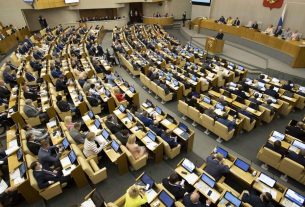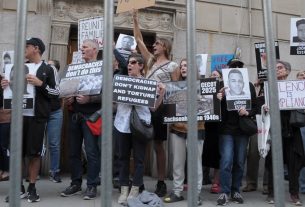On December 10th, the United Nations marked International Human Rights Day, a moment to reflect on the progress and challenges in the global human rights landscape. UN High Commissioner for Human Rights, Volker Türk, delivered a sobering address in Geneva, highlighting the critical human rights issues that have shaped the past year. His reflections underscored the increasing challenges faced by individuals and communities worldwide, exacerbated by political, environmental, and social crises.
Proliferation of Armed Conflicts and International Law Erosion
One of the most pressing concerns raised by Türk was the ongoing and escalating violence in armed conflicts around the world. He specifically pointed to the widening disregard for international law in warfare, noting that the suffering of civilians in conflict zones has reached alarming levels. From the ongoing violence in the Middle East—particularly in Israel, the Occupied Palestinian Territories, and Lebanon—to the war in Ukraine, conflicts in Sudan and Myanmar, and the enduring Syrian crisis, the High Commissioner emphasized the urgent need for accountability and respect for international humanitarian law.
Türk condemned the increasing indifference of powerful states to the devastation caused by these conflicts. He called attention to the staggering human toll, with millions of lives lost or irreparably harmed, and the destruction of vital infrastructure, which leaves populations without access to basic services. The High Commissioner made a particular point of the necessity for all parties involved in these conflicts to respect civilian lives and hold perpetrators of war crimes accountable.
The Dangers of Disinformation and Political Manipulation
Another alarming trend highlighted by Türk was the rise of disinformation and emotional manipulation, especially in political spheres. With the occurrence of several key elections across the globe, many witnessed the use of disinformation campaigns designed to mislead and divide populations. The spread of “fake news,” fueled by both state and non-state actors, has undermined trust in media and international institutions, casting a shadow over democratic processes and human rights advocacy.
Türk warned of the dangers posed by these tactics, including the rise of “gaslighting,” where political leaders and media outlets deliberately distort facts to manipulate public perception. This manipulation erodes the foundations of truth, accountability, and trust that are essential for upholding human rights, particularly in fragile democracies.
The Triple Planetary Crisis and Growing Inequality
While wars and political disinformation dominate the headlines, the High Commissioner also pointed out the often-overlooked long-term threats to human security: climate change, environmental degradation, and biodiversity loss. These interconnected crises, which Türk referred to as the “triple planetary crisis,” have far-reaching consequences for human rights. Rising temperatures, pollution, and the destruction of ecosystems disproportionately affect marginalized communities, exacerbating global inequalities.
Türk emphasized that these environmental challenges demand urgent action, not only to mitigate their effects but also to prevent further harm to the most vulnerable populations. At the same time, he underscored the persistent economic disparities between rich and poor nations, which continue to drive social unrest and deepen inequality. Addressing these disparities, he argued, is crucial for the fulfillment of human rights globally.
The Weaponization of Human Rights
Reflecting on the broader geopolitical landscape, the High Commissioner noted a troubling trend: human rights are increasingly being instrumentalized for political and strategic purposes. He pointed to interventions justified on humanitarian grounds that, in reality, often serve the interests of powerful states. This concern echoes the warnings raised by Silo, a humanist writer, who cautioned against the use of human rights as a pretext for undermining national sovereignty and advancing the agendas of dominant powers.
Silo’s critique of the instrumentalization of human rights, articulated in his “Letters to My Friends” and “Humanize the Earth,” resonates with Türk’s remarks. Silo warned that interventions justified by lofty humanitarian ideals could set dangerous precedents for future actions that do not serve the true interests of the people affected. He cautioned that while human rights ideals are essential, their realization requires a deeper transformation of global power structures.
The Path Forward: Upholding Human Rights Principles
Despite the numerous challenges outlined, Türk’s message was not one of despair but of resolve. He called on the international community to remain steadfast in its commitment to human rights, noting that they are not abstract concepts but fundamental values that define humanity’s shared future. Human rights are grounded in law, facts, and compassion, he asserted, and they embody the needs and aspirations of people worldwide.
In his closing remarks, the High Commissioner reminded the global community that the struggle for human rights is ongoing. “Human rights are not abstract ideas or ideologies,” he said. “They are about who we are and how we live.” He urged governments and civil society alike to continue fighting for justice, accountability, and the protection of the most vulnerable.
As we approach 2024, the challenges to human rights remain formidable, but the principles enshrined in the Universal Declaration of Human Rights must continue to guide efforts for peace, justice, and equality. The fight for human rights is far from over; it is a struggle that must be reinvigorated each time violations occur, for as Silo noted, “Human rights are not of the past—they are the future, drawing intentionality and fueling a struggle that reignites with every new violation.”
Conclusion
The UN High Commissioner for Human Rights’ reflections serve as a timely reminder of the profound challenges facing humanity. From armed conflicts and disinformation to the planetary crises and growing inequality, the need for a renewed commitment to human rights has never been more urgent. Only by upholding the fundamental principles of human dignity, justice, and compassion can we ensure a better, more equitable future for all.



